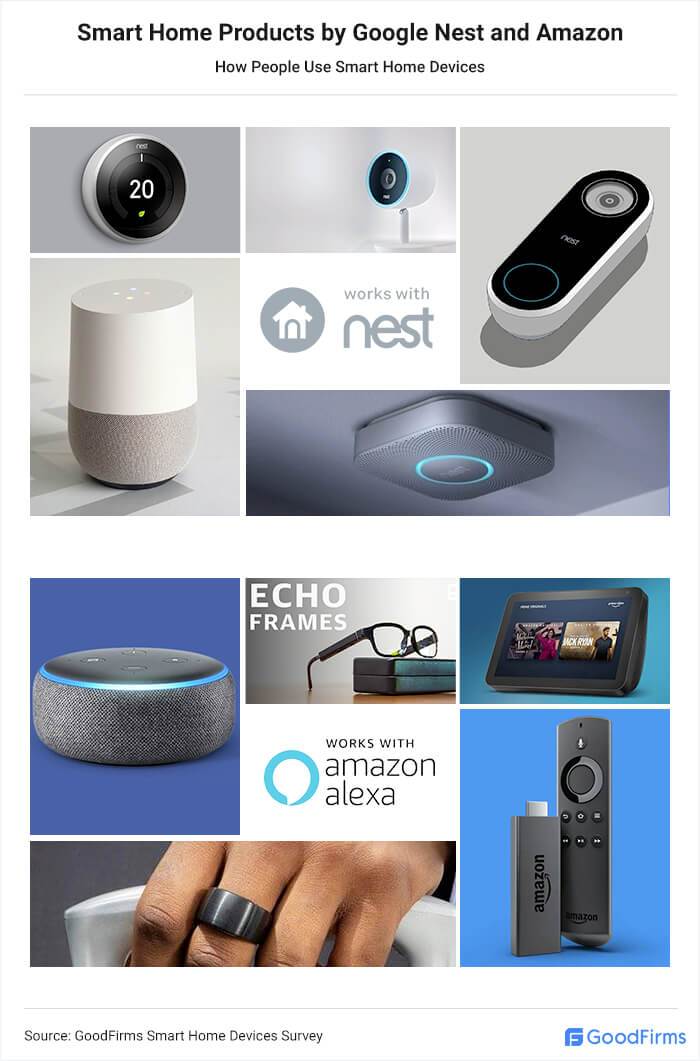Index Surge: Amplifying Your Insights
Stay updated with the latest trends and news across various industries.
Smart Homes or Smart Nightmares? The Surprising Truth Behind Your Devices
Discover the hidden risks and rewards of smart home tech. Are your devices helping or haunting you? Uncover the surprising truth!
Are Smart Homes Making Us Lazy or Just More Efficient?
The advent of smart homes has transformed the way we interact with our living spaces, leading to a debate about whether these technologies are making us lazy or simply enhancing our efficiency. With devices such as smart thermostats, automated lighting, and voice-activated assistants, daily tasks can be completed with minimal effort. For instance, instead of walking across the room to adjust the temperature, homeowners can simply issue a command to their virtual assistant. This convenience raises concerns that reliance on these technologies might sap our motivation to engage in daily activities, fostering a mindset of inactivity.
Conversely, many argue that smart home technologies promote efficiency and save time, allowing individuals to focus on more meaningful pursuits. By automating routine chores and managing energy use effectively, these innovations encourage a smarter way of living. For example, through programming and remote access, homeowners can ensure their home is energy-efficient while away, boosting sustainability. Thus, rather than promoting laziness, smart home technology can be seen as an opportunity to reclaim precious time and redirect our efforts towards creativity, personal growth, and leisure activities that enrich our lives.

The Dark Side of Smart Devices: Security Risks You Need to Know
Smart devices have become ubiquitous in our daily lives, offering unparalleled convenience and functionality. However, this increased connectivity also brings a significant security risks that users often overlook. One major concern is the potential for unauthorized access to personal data. Many smart devices, from home assistants to security cameras, collect sensitive information that can be exploited by hackers if not properly secured. A study found that more than 70% of smart home devices have vulnerabilities that could be easily targeted, putting users' privacy at risk.
Moreover, many smart devices are not regularly updated, leaving them susceptible to attacks. Outdated software can create holes in the security framework, allowing malicious actors to gain control over the device. It's crucial for users to take proactive measures, such as changing default passwords, ensuring devices are updated with the latest firmware, and employing robust security protocols. By understanding and addressing these security risks, consumers can better safeguard their smart environments and enjoy the benefits of technology without compromising their safety.
How Smart Technology is Transforming Our Lives: Benefits vs. Drawbacks
Smart technology is revolutionizing the way we live, work, and interact with our environment. From smart home devices that enhance convenience and energy efficiency to wearable technology that monitors our health, the benefits are numerous. Improved connectivity and automation mean that tasks can be completed at the touch of a button, saving us time and effort. For instance, smart thermostats can optimize heating and cooling based on our daily routines, leading to significant energy savings. Additionally, advancements in artificial intelligence allow for personalized experiences, significantly impacting areas like education and customer service.
However, as we embrace these innovations, we must also consider the potential drawbacks. One major concern is privacy; smart devices often collect vast amounts of personal data, raising questions about how that information is stored and used. Furthermore, there is the risk of becoming overly reliant on technology, which can lead to a decrease in critical thinking and problem-solving skills. As we evaluate the impact of smart technology on our lives, it's crucial to strike a balance between maximizing its benefits while mitigating potential risks.